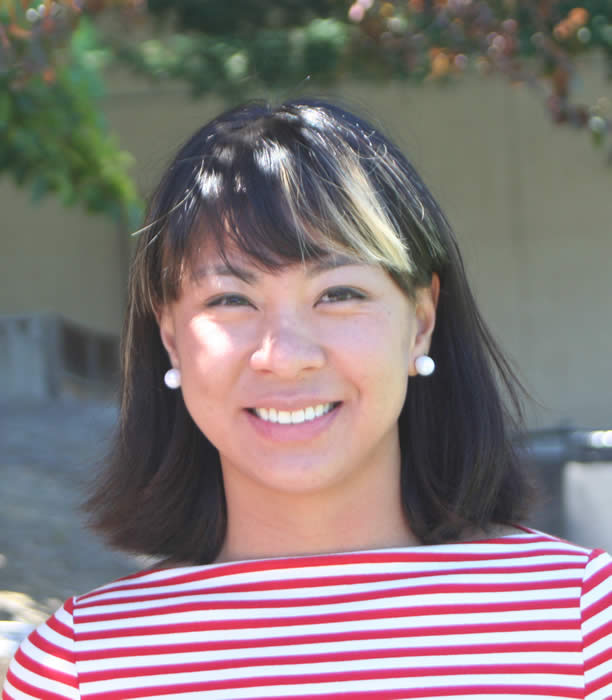Campion’s suggestion of Theosophical astrology being an astrology for the modern, in the context of a revision of the Enlightenment and ‘modernity’, sheds light on the place of alternative, holistic, and esoteric spiritualities in the modern world.
An Astrology (and Spiritualities) for the Modern: A Reflection on Nick Campion
By S. Francesca Po, King’s College London
Published by the Religious Studies Project, on 5 December 2012 in response to the Religious Studies Project Interview with Nick Campion on Astrology (3 December 2012).
‘[Theosophical astrology] is an astrology of modernity’, suggests Nick Campion in his interview with the Religious Studies Project. However, before even coming to this suggestion, David Robertson asked some very challenging, informed questions on the assumptions about astrology—particularly, if contemporary astrologers have ‘reinterpreted’ astrology in order to appeal to the cosmology of modernity. This question is also relevant to many alternative, holistic, and ‘postmodern’ spiritualities, which I hope to focus on in this reflection.
Firstly, Campion clarifies the concepts of the Enlightenment and modernity. Regarding the Enlightenment, what is commonly understood as a period that triumphed reason is currently being challenged, as many of the advocates for ‘reason’ during the Enlightenment were devout practitioners of Rosicrucianism and esoteric Freemasonry. The concept of ‘modernity’ is just as complex. Giving the example of the founders of modern art, Campion points out that they too were practitioners of esoteric traditions: Wassily Kandinsky, the founder of abstract art, was a Theosophist, and André Breton, the founder of Surrealism, was an astrologer. The Enlightenment and modernity are not, perhaps,as pragmatic, empirical, or objective as academic scholarship may have previously thought.
That being said, Campion continues, the notion of ‘modernity’ being something that is countered against or opposed to esoteric traditions is simply not valid, because the Enlightenment and modernity were actually heavily driven by esoteric worldviews. He argues that labelling the New Age ‘postmodern’ is problematic in the same way. His suggestion that ‘[Theosophical astrology] is an astrology of the modern’ is simply to display continuity in history: astrology has always existed with no breaks, there are always competing currents of which religious/spiritual/esoteric practices have more validity or effectivity, and there are always practices that are committed to developing alongside the rest of culture. In this case, Theosophical astrology is part of the continuous lineage of astrology in the West, and has developed a system that is compatible with the modern worldview.
My research focuses on the population in the United Kingdom and the United States that have no religious preference (the ‘nones’) and generally are not institutional attendees (the ‘unchurched’), but may still engage or sympathize with religion. This research led me to ethnographic work on various non-religiously affiliated social groups – namely the ‘integral milieu’ (otherwise known as the ‘intellectualist wing of the New Age’ [Heelas, 1996, p. 5]) and the ‘post-Christian milieu’ (the more ambiguous branches of the Emerging Church, to be detailed later in this article) – that may generally be considered alternative, holistic, or ‘postmodern’.
Within my research, like Campion, I have also encountered the problem with using the concept of ‘postmodernism’ as a label for these spiritualities. ‘Postmodernism’ has been defined as ‘incredulity toward metanarratives…’, ‘frank revelations of theoretical perplexity, testimonies to dramatic shifts in reality, and expressions of existential despair’, and ‘a stylistic promiscuity favoring eclecticism and the mixing of codes; parody, pastiche, irony, playfulness and the celebration of the surface “depthlessness” of culture’ (Christiano, 2007, p. 47). Although many of the groups I am studying are generally ambivalent of metanarratives, recognize the complexity of existence, and favor eclecticism, I have observed that they do actually recognize tangible truths, even if only temporary ones, and ultimately strive for a depth that one can be comfortable in, even if it may not be attained. Kevin Christiano argues that:
‘a postmodern religion would not be captured within a church—or not a highly conventional such organization… Religion in postmodernity would be ahistorical and anti-traditional… Most of all, it would not hesitate to implode on the individual, and it would not regret the mess…’ (Christiano, 2007, p. 48)
Although the groups I am studying are not at all traditional constructs of religious institutions, they do exhibit historicity and tradition, and though they may have the ability to ‘implode on the individual’, they would probably attempt to ‘clean up the mess’ of it. Within my observations, alternative, holistic, and ‘postmodern’ groups may, at most, only resemble postmodernism, but are actually continuous with the lineage of modernity.
More specifically, two ‘postmodern’ religions or spiritualities that are actually continuous with modernity are the ‘progressive milieu’ (Lynch, 2007, p. 10) and the Emerging Church. The ‘progressive milieu’ is what Gordon Lynch calls the milieu of individuals and groups coming from the progressive branches of all religious traditions. They engage in many practices and have many ideas that may be considered alternative, New Age, or ‘postmodern’, but Lynch argues that they are actually continuous to modernity using a similar argument as Campion (Lynch, 2007, pp. 65-70). He says, ‘progressive spirituality is not so much postmodern, as a particular form of modernism – a softer modernism – a spiritual way of living for the modern age’ (Lynch, 2007, p. 68).
Similarly, the Emerging Church is a milieu of individuals and groups that generally do not identify with any religious tradition, explores and experiments with a wide range of religious and philosophical ideas and practices, but claim groundedness in Christianity. Historian Dominic Erdozain and sociologist Walt Scalen both argue that the Emerging Church is continuous with the same ‘spirit of reason’ as the Enlightenment, and shares a lineage with Enlightenment evangelicals (Erdozain, 2011, p. 93, 121; Scalen, 2010, p. 72). Erdozain says, ‘[Evangelicals] had to step away from the inherited structures of the faith before they could engage with their culture. They were the pioneers of the emerging church’ (Erdozain, 2011, p. 93).
Campion’s suggestion of Theosophical astrology being an astrology for the modern, in the context of a revision of the Enlightenment and ‘modernity’, sheds light on the place of alternative, holistic, and esoteric spiritualities in the modern world. Alongside my own observations and research, I find Campion’s insight an imperative one in the study of contemporary religion. The spirit of challenging and experimenting with religious ideas and practices is not simply a passing ‘postmodern’ project within the human desire to place meaning in a chaotic cosmology—it is a ‘spirit’ that has always existed in human history.
This material is disseminated under a Creative Commons Attribution-NonCommercial-NoDerivs 3.0 Unported License. and can be distributed and utilised freely, provided full citation is given.
About the Author
 S. Francesca Po is currently a doctoral student of Theology and Religious Studies at King’s College London, and is teaching modules on Buddhism. The working title of her thesis is ‘After “Spirituality”: An Emerging Common Sociality Among the New Age, Religious, and Religiously Unaffiliated in the United Kingdom and the United States’ under the supervision of Dr. Marat Shterin. Prior to being at King’s, she lectured at the University of San Francisco; received an M.A. in Philosophy and Religion, with a concentration in ‘Philosophy, Cosmology, and Consciousness’ at the California Institute of Integral Studies; a B.A. in Religious Studies and Music at the University of California at Berkeley; served in the United States Peace Corps in Kazakhstan; and has had a career as a high school teacher of philosophy and religious studies, and campus chaplain. She has published and spoken on various subjects, including: nonviolence, politics, popular culture, religion, sociology, and spirituality. For an institutional biography, visit: http://www.kcl.ac.uk/artshums/depts/trs/people/stuprofiles/research/po.aspx
S. Francesca Po is currently a doctoral student of Theology and Religious Studies at King’s College London, and is teaching modules on Buddhism. The working title of her thesis is ‘After “Spirituality”: An Emerging Common Sociality Among the New Age, Religious, and Religiously Unaffiliated in the United Kingdom and the United States’ under the supervision of Dr. Marat Shterin. Prior to being at King’s, she lectured at the University of San Francisco; received an M.A. in Philosophy and Religion, with a concentration in ‘Philosophy, Cosmology, and Consciousness’ at the California Institute of Integral Studies; a B.A. in Religious Studies and Music at the University of California at Berkeley; served in the United States Peace Corps in Kazakhstan; and has had a career as a high school teacher of philosophy and religious studies, and campus chaplain. She has published and spoken on various subjects, including: nonviolence, politics, popular culture, religion, sociology, and spirituality. For an institutional biography, visit: http://www.kcl.ac.uk/artshums/depts/trs/people/stuprofiles/research/po.aspx
In-text References
- Christiano, K. J. (2007). Assessing Modernities: From “Pre-” to “Post-” to “Ultra-.” The Sage Handbook of the Sociology of Religion (pp. 39–56). London: SAGE.
- Erdozain, D. (2011). Emerging Church: A Victorian Prequel. The Great Tradition – A Great Labor: Studies in Ancient-Future Faith (pp. 92–121). Eugene, OR: Wipf & Stock Pub.
- Heelas, P. (1996). The New Age Movement: The Celebration of the Self and the Sacralization of Modernity. Oxford: Blackwell.
- Lynch, G. (2007). The New Spirituality: An Introduction to Progressive Belief in the Twenty-First Century. London: I.B.Tauris.
- Scalen, W. (2010). The Emergent Church: Cutting Edge or 60s Redux. The Year 2010 Proceedings of the ASSR-SW, 66–74.
Emerging Church Recommendations
- Bell, R. (2011). Love Wins: At the Heart of Life’s Big Questions. London: HarperCollins UK.
- Cox, H. (2010). The Future of Faith. New York: HarperCollins.
- DeYoung, K., & Kluck, T. (2008). Why We’re Not Emergent: By Two Guys Who Should Be. Chicago: Moody Publishers.
- McLaren, B. (2010). A New Kind of Christianity: Ten Questions that are Transforming the Faith. London: Hachette UK.
- McLaren, B. D. (2007). Everything Must Change: Jesus, Global Crises, and a Revolution of Hope. Nashville, TN: Thomas Nelson Inc.
- Rutba House. (2005). School(s) for Conversion: 12 Marks of a New Monasticism. Eugene, OR: Wipf & Stock Publ.
- Sweet, L. (2000). Postmodern Pilgrims: First Century Passion for the 21st Century Church. Nashville, TN: B&H Publishing Group.
- Sweet, L., Sweet, L. I., McLaren, B. D., & Haselmayer, J. (2002). A Is for Abductive: The Language of the Emerging Church. Grand Rapids, MI: Zondervan.
- Wilson-Hartgrove, J. (2008). New Monasticism: What It Has to Say to Today’s Church. Ada, MI: Brazos Press.
Integral Milieu Recommendations
- Aurobindo. (1985). The Life Divine. Twin Lakes, WI: Lotus Press.
- California Institute of Integral Studies. (2012). The California Institute of Integral Studies. Retrieved from http://www.ciis.edu/
- Esalen Institute. (2011). Esalen Institute. Esalen Institute. Retrieved from http://www.esalen.org/
- Gebser, J. (1985). The ever-present origin. Athens, OH: Ohio University Press.
- Grof, S. (2000). Pschology of the Future: Lessons from Modern Consciousness Research. SUNY Press.
- Kelly, S. M. (2009). Coming Home: The Birth and Transformation of the Planetary Era. Herndon, VA: Lindisfarne Books.
- Macy, J. (2007). World as lover, world as self: courage for global justice and ecological renewal. Berkeley, CA: Parallax Press.
- Swimme, B., & Berry, T. (1994). The Universe Story: From the Primordial Flaring Forth to the Ecozoic Era–a Celebration of the Unfolding of the Cosmos. New York: HarperCollins.
- Tarnas, R. (2011). Passion of the Western Mind. Crawfordsville, IN: Random House Publishing Group.
- Wilber, K. (2000). Sex, Ecology, Spirituality: The Spirit of Evolution. Boston, MA: Shambhala Publications.



